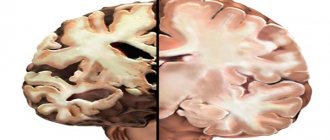Mild, borderline and severe mental disorders can be accompanied by morbid jealousy.
In particular, delusions of jealousy can occur against the background of schizophrenia (F20, ICD-10), schizotypal and delusional disorders (F21–22, ICD-10), as well as pathology of the endocrine and nervous systems (for example, with the use of psychoactive substances, hormonal drugs). The treatment tactics for delusions of jealousy depend on the identified mental disorder (the true cause) and the nature of the course of the disease. In some cases, pathological jealousy can be eliminated during sessions of individual and/or family psychotherapy (6–8 sessions); in others, selection of pharmacotherapy is required.
Our clinic sees male and female sexologists, as well as psychotherapists with extensive clinical experience specializing in relationship problems.
The prognosis for the treatment of delusions of jealousy comes down to a therapeutic assessment of the underlying disease, resistance to pharmacotherapy and the presence of concomitant mental disorders. The chance of relapse of the disease after discharge is quite high, so you should attend follow-up examinations, follow recommendations for taking medications, and do not neglect individual and family psychotherapy.
Consultation with a doctor for the treatment of delusions of jealousy:
+7
Thank you for your trust!
- Diagnosis and treatment without registration
- Selection of therapy on an outpatient basis, anonymously
- Help from a psychotherapist and psychiatrist
| Service | Price | |
| Ambulatory treatment | ||
| Psychiatrist consultation | 4 500 ₽ | |
| Appointment with a psychotherapist | 4 500 ₽ | |
| Reception of the chief physician Bocharov A.V. (Associate Professor, Candidate of Medical Sciences) | 6 000 ₽ | |
| Consultation with a psychiatrist at home | 4 400 ₽ | |
| Treatment in hospital | ||
| Delivery to hospital | For free | |
| Standard room | 7 300 ₽ | |
| 3-bed superior room | 10 200 ₽ | |
| 2-bed superior room | 13 000 ₽ | |
| 1 local VIP chamber | 18 000 ₽ | |
| Doctor's appointment 2 weeks after discharge | For free | |
Gender nuances of the problem
Men are more often diagnosed with paranoid delusions of jealousy. The chances of encountering the disease increase sharply when a person reaches the age of forty. The likelihood of becoming delusional is especially high if you have a history of:
- alcoholism;
- addiction;
- sexual dysfunctions;
- mental illness.
If, due to mental disorders, delusion develops quickly, then in alcohol addicts it develops gradually . So, first the drinker makes claims to his wife after he gets drunk. Later, he begins to give out delusional speculation even in a sober state. Then the patient begins to check literally every step of his wife, making her life unbearable. It comes to domestic scandals and fights. It is clear that their initiator is “Othello”.
In women, the disease develops in parallel with aggression, periodically alternating with depression . When conducting diagnostics at the time of diagnosis, the doctor discovers that the patient’s blood levels of serotonin (known as the happy hormone) are low. Therefore, she often shouts at her family, looking for reasons to quarrel with them. After such squabbles, the concentration of dopamine (the pleasure hormone) in the body temporarily increases. The patient becomes very vindictive, embittered towards the whole world. Suspecting a spouse of infidelity creates conditions leading to divorce.
Psychologists about jealousy
From the point of view of a psychologist, jealousy is one of the phenomena of the human psyche, which in many situations is a normal reaction to the emerging conditions of a lack of attention from a significant person. That is, it is assumed that in any normal healthy person this feeling is possible. Jealousy is a negatively colored experience and therefore causes suffering. Like any negative emotion (envy, humiliation, guilt, desire for revenge, etc.), jealousy has a “useful meaning”, allowing our psyche to better adapt to external stress factors. According to psychologists, the so-called unconscious jealousy is especially insidious and “toxic”. Unconscious jealousy is manifested by aggressive or codependent behavior with loved ones, self-aggression. At the same time, the person himself does not understand that he is jealous and is trying in this way to regain attention, recognition or love.
Why does the disorder develop?
Scientists are still debating why symptoms of delusions of jealousy occur. Today there are several theories of its development. Researchers say with confidence that poor heredity plays an important role in the appearance and progression of pathology.
Pathology can also form due to abnormal functioning of any part of the brain . Thus, with a deficiency of any neurotransmitter, normal processes of brain activity are disrupted, and negative reactions such as aggression, depression, and delirium are activated.
Often, delusions of jealousy occur after a stressful situation, alcohol binge, or drug overdose . If the patient has reduced vision, poor hearing, or has a disability, then delusional disorders will become even more colorful and vivid - he will invent something that he actually did not see or hear.
Reasons for the development of delusions of jealousy
There are quite a lot of factors in the development of the pathological process. They are somehow connected with the personality of the patient. The reasons may lie in the premorbid period. When there was no disease as such. As a rule, delusions of jealousy develop in patients with the following characteristics:
- History of psychotic disorders
We are talking about pathological processes that completely destroy the patient’s picture of the world. Several violations can be identified here.
The first is schizophrenia. A classic psychiatric disease. The plot of delirium is persistent, the disturbance of thinking does not disappear even after the disease goes into stable remission. Patients have to continue to take medications so that the clinical picture does not intensify. As a rule, other manifestations also arise. For example, hallucinations.
The second possibility is bipolar affective disorder. Delusions of jealousy in this case are not so persistent and can be easily eliminated with special drugs - antipsychotics. It is possible to use tranquilizers. Typically, episodes of delusional disorders occur at the peak of the manic phase of the disorder.
Delusions of jealousy also occur in other disorders. Schizophreniform, reactive psychoses. There are several options.
- Suspicion
By her own. Not as a symptom of a disease, but as a character trait. Suspiciousness as such increases the likelihood of developing a pathological process by 2-3 times. Perhaps more. Data varies from source to source.
- Paranoid or epileptoid personality type
According to Leonard. A paranoid character is determined by two typical characteristics. Closedness: a person is uncommunicative, does not strive to realize himself in society. Or, on the contrary, he is too active, but only for show. Also an extreme degree of suspicion.
Epileptoid accentuation of character is determined by aggressiveness, and even cruelty. The need to dominate everything and always. This is a pronounced leadership accentuation, which, unfortunately, can transform into a disorder.
Of course, accentuation does not always lead to illness. In the area of special risk are patients whose features of personal accentuation are so pronounced that it borders on pathology. Most often we are talking about patients with personality disorders, psychopathy, as they were previously called.
- Tendency to aggression, high degree of irritability
Also, these qualities are not necessarily associated with character accentuation or some kind of disease. Variations are possible. The risk is higher, but there is no guarantee that the disorder will begin.
Delusions of jealousy as such develop for several reasons. As a rule, they are found in the system and go hand in hand.
Heredity
Studies show that patients with a family history of mentally ill people have a higher risk. This is not necessarily an identical pathological process. Options up to schizophrenia or other deviations are possible. Including neurotic nature, severe disorders. Most likely, we are talking about a genetic predisposition to psychosis.
Alcoholism
Less commonly, drug addiction. Dependence on ethanol and psychoactive substances. The most common culprit is alcoholism. It accounts for up to 90% of all cases of the disease and approximately 3% of alcoholic psychoses in general. In such patients, the disorder becomes resistant and difficult to treat. It takes a lot of time: months, possibly years. All this time it is necessary to correct the basic condition. That is, dependence on alcohol.
Psychotype
It has already been mentioned earlier. Paranoid personalities, stuck-type people, epileptoids. All of them are at greater risk of encountering a pathological process than healthy people. There is no treatment as such; it requires the use of drugs and intensive psychotherapy to smooth out negative personality traits.
Upbringing
As a rule, people suffer who had a negative example before their eyes in childhood. For example, parents' scandals due to their wife's infidelity or the husband (father) leaving the family. There can be many options. The fact is that the patient did not receive a positive example, one to look up to. Plus, such situations destroy the psyche, which is still fragile.
Brain biochemistry disorders
This condition does not always lead to psychosis. In some cases, neurotic disorders begin. In this case, delirium begins. Neurotransmitters are responsible for transmitting nerve impulses in the right direction. As soon as this process is disrupted, the normal functioning of the brain suffers and logic is lost.
Sexual failures. Sexual incompetence
This is quite a possible option if a person is unsuccessful sexually. Over a long period of time, this undermines the psyche and creates a dominant state in the brain. Especially if the patient does not sublimate the accumulated energy. Doesn't take it into a productive direction. The problem is solved under the supervision of a psychiatrist. The participation of a sexologist is possible.
There are also quite a few trigger mechanisms. They directly trigger delusions of jealousy. From this moment the disease begins. These include:
- Intense stress, especially constant stress. If a person does not relax and cannot rest.
- Psychological stress.
- A traumatic situation, such as job loss, death of a loved one, problems with a partner.
- Fatigue, lack of normal, proper rest.
There are many reasons. They are usually found in the system.
Risk group for the development of pathology
Doctors were able to establish that more often people experience delusions of jealousy who:
- abuse alcohol;
- take psychoactive substances;
- suffer from hallucinosis, paranoid personality disorder;
- have been abused in the past;
- experience difficulties interacting with members of the opposite sex;
- have pronounced sadistic tendencies.
What methods do doctors use to treat morbid jealousy?
Pathological jealousy is difficult to treat. Therapy is preceded by the doctor’s determination of the psychological, social and biological characteristics of each specific patient. The greatest successes in therapy can be achieved with the help of psychopharmacotherapy: specific neuroleptics, mood stabilizers, neurometabolic therapy, sedatives. Psychotherapy and physiotherapy are used in combination with medications. Isolation from the familiar environment (for example, hospitalization in a hospital) can have a positive effect on the prevalence of ideas of jealousy.
If you or your loved one exhibits the symptoms described above, please contact us. We provide psychological assistance and, if necessary, treatment of pathological jealousy.
Cost of services
| CONSULTATIONS OF SPECIALISTS | |
| Initial consultation with a psychiatrist (60 min.) | 3,500 rub. |
| Repeated consultation | 2,500 rub. |
| Consultation with a psychiatrist-narcologist (60 min.) | 3,500 rub. |
| Consultation with a psychologist | 2,500 rub. |
| Consultation with Gromova E.V. (50 minutes) | 12,000 rub. |
| PSYCHOTHERAPY | |
| Psychotherapy (session) | 6,500 rub. |
| Psychotherapy (5 sessions) | 25,000 rub. |
| Psychotherapy (10 sessions) | 48,000 rub. |
| Group psychotherapy (3-7 people) | 3,500 rub. |
| Hypnosis (1 session) | 10,000 rub. |
| Hypnotherapy course (5 sessions) | 45,000 rub. |
| Psychotherapy session with E.V. Gromova (50 minutes) | 12,000 rub. |
This list does not contain all prices for services provided by our clinic. The full price list can be found on the “Prices” , or by calling: 8(969)060-93-93. Initial consultation is FREE!
Treatment of this disease
Usually they resort to the help of psychotherapists and psychiatrists. Jealousy can be dealt with easily by simply isolating the cause of its manifestation. This will not work with pathology. In addition to eliminating the source of pathology, it will be necessary to normalize the person’s mental state, which was disturbed during this period of time.
Diagnostics
- Analysis of the patient’s behavior during the period of pathology;
- Personal conversation with a psychotherapist;
- Collecting information through surveys, drawing up questionnaires and passing tests;
- Interview with close relatives and friends.
Based on a set of data, the specialist makes his verdict on the diagnosis and condition of the person.
How to treat
After diagnosis, the doctor talks with the couple and tells them about the specifics of the diagnosis. For treatment to be effective, it is important to understand what triggered the pathological mechanism for the progression of delusions of jealousy.
If the patient is inadequate and is ready to use force against his victim, he is hospitalized in a psychiatric hospital. Such a person should not be left at home, as the consequences for his family could be very sad.
Therapy is carried out at two levels:
- reducing the risk of domestic violence;
- relief of symptoms of mental disorder.
The patient is prescribed medications (antidepressants, antipsychotics, sedatives) , and is prescribed effective psychosocial programs. Group and individual therapy sessions and cognitive behavioral adjustment can achieve excellent results.
It is very important not to delay treatment of delusions of jealousy until later, since this pathology tends to rapidly progress and worsen. So call the clinic right now - 8(969)060-93-93
How to get rid of feelings of jealousy
If jealousy arises as a reaction to real external events (the departure of a loved one for another, unrequited love, lack of attention), then there is no need to specifically get rid of it. In such cases this is normal. Psychologists recommend waiting it out (“press pause”), switching gears (going on vacation or working with your head), working with your anxiety and your, usually in such cases, low self-esteem. Psychologists have a lot of exercises and activities in their arsenal for this type of help: special trainings, psychotherapy using the symboldrama method or emotional-imaginative therapy.
In cases where a feeling of jealousy covers the entire consciousness, subordinates behavior, changes perception, then the help of a psychotherapist or psychiatrist will be required. In mild cases, pathological jealousy manifests itself in the form of obsessive thoughts; a person may remain critical of his condition and understand that he cannot cope with it on his own. In severe cases, the preoccupation turns into delirium (erroneous conclusions that cannot be dissuaded), critical understanding is lost, and here help is only possible in cases where relatives notice this and can arrange an examination by a psychiatrist. Only treatment can get rid of such feelings of jealousy.
What symptoms accompanying feelings of jealousy should be noted as dangerous and requiring the help of a doctor:
- Checking someone else's phone, mail, social networks and other personal correspondence. Checking personal belongings. Regularly and for no reason.
- A strong belief that “he (she) is definitely cheating on me” without evidence of cheating.
- Sleep disturbances in the form of late falling asleep and (or) early awakenings.
- Decreased appetite, weight loss.
- Aggression.
- The feeling that others are “discussing, judging or hating me.”
- Guilt.
Is this a mental illness?
Delusions of jealousy are considered one of the types of paranoia, when a person is completely unable to control his behavior and becomes more aggressive and suspicious.
A person begins to feel that everyone around him is aware of his significant other’s infidelity and is laughing at him, while his partner is simply leading him by the nose.
Paranoia arises suddenly - a man suddenly begins to think that his wife is cheating on him, and finds a lot of evidence: she returned home late, put on a new dress and made a mess, does not immediately respond to calls and messages, and more.
A man is jealous of his woman for any other man, forbids her to work and communicate with “depraved”, “bad” friends, even to wear makeup and use social networks.
Such a jealous man certainly checks her phone and email, constantly checks her whereabouts, but even such methods do not calm the man down.
In some cases, the man even demands a genetic examination to determine the paternity of the child.
Refusal of such a procedure is automatically a sign of treason.
In this state, there are no logical arguments or ways to calm down for a man; he can even beat his wife or potential lover.
Paranoia of jealousy is easy to distinguish from the usual feeling of a healthy person - after providing evidence of irrefutable fidelity, jealousy should dull and calm down. If this does not happen, then the person needs urgent psychological therapy.
The essence of the phenomenon
You need to understand that delusional pathology, despite its painful nature, is still a manifestation of jealousy. To find out the nature of this illness, you need to understand the essence of the sensory-emotional phenomenon itself.
Jealousy, regardless of its nature and intensity, is a phenomenon of a complex psychological nature, an emotional-sensual mechanism, a vivid product of the activity of the human psyche. This feeling refers to manifestations of: anxiety, neurotic need for love and psychological mechanisms of defense against threats.
Jealousy is characterized by the participation of three persons:
- the subject is the bearer of the emotional state;
- object - a loved one to whom the emotional state is directed;
- object - a potential competitor, of whom the subject is jealous.
All of the above characteristics relate to the sphere of human psychology, therefore, in an extremely strong form, jealousy develops into psychological pathology.
The zealous state is generated by a large number of reasons and has many forms of manifestation. A person is jealous for the following reasons:
- fear;
- mistrust;
- low self-esteem;
- lack of self-confidence;
- selfishness;
- psychological trauma;
- painful passion;
- negative experiences in the past, etc.
The above characteristics can be conditionally attributed to the causes of a delusional state. But in reality, these factors cause mistrust, and other reasons lead to pathology.
According to the nature of its manifestation, jealousy can be of the following types:
- aggressive;
- passive;
- reversed;
- hidden.
For the first time, S. Freud identified a separate extreme form of aggressive jealousy, which turns into a state of psychological disorder. This form is called delusional jealousy. Later, Freud's views, based on hidden sexual impulses, were not developed, but the term itself took root, becoming the definition of mental pathology.
Jealousy is a complex condition that includes several fundamental feelings:
- anger;
- anger;
- resentment;
- fear;
- pride;
- suspiciousness;
- envy, etc.
Pathological illness also manifests itself in the expression of a certain combination of these feelings. In a delusional state, they acquire extreme forms of intensity and lose touch with reality.
Now let’s summarize the above theses and try to define the concept of illness. In the process of development of jealousy, at a certain moment, under the influence of external and internal factors, the sensory-emotional state passes into the extreme stage of mental disorder. It has all the characteristic features of jealousy, with a predominance of extreme inadequacy, unreasonableness, obsession and aggressiveness.
Delirium of pathological jealousy is a disorder of the human psyche, which is expressed in severe attacks of jealousy, manifested in an inadequate and dangerous form. Often pathology is one of the signs of another mental illness.
It is worth distinguishing between delusional pathology and aggressive jealousy. Aggression is the result of character traits and personal primitiveness. And delirium is always a painful mental disorder, which is often accompanied by aggression.











